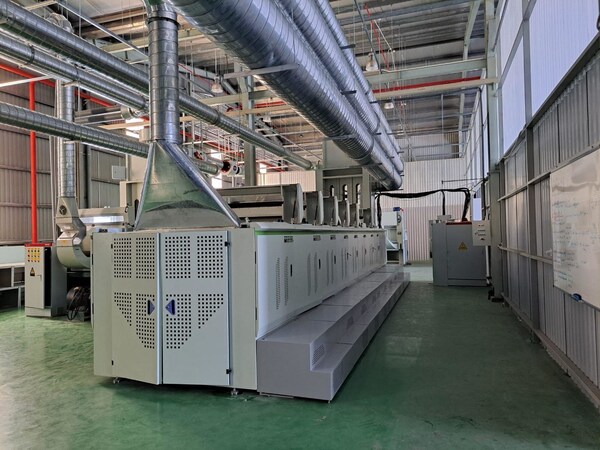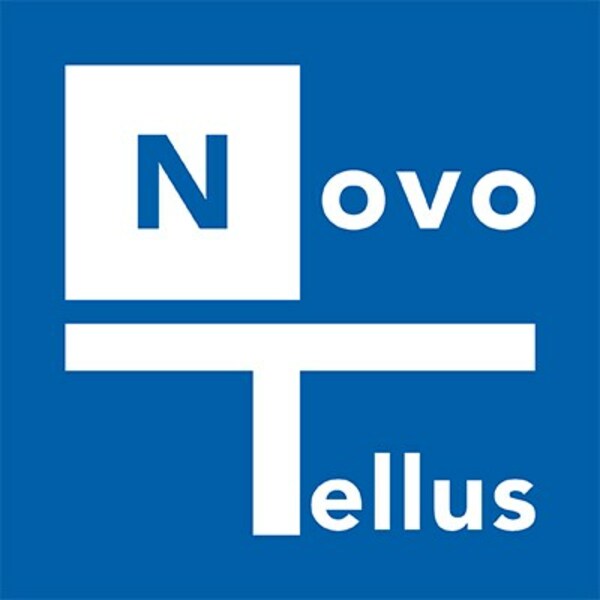 |
HO CHI MINH CITY, Vietnam, June 26, 2024 /PRNewswire/ -- NEXTEVO, a Singapore-based materials science startup, is thrilled to announce the launch of its inaugural production facility in Dong Nai province, Vietnam. This state-of-the-art facility transforms pineapple leaf fiber (PALF) into ready-to-spin (RTS) fiber using NEXTEVO's efficient mechanical process for scalable production.
NEXTEVO's Launch Addresses Two Significant Environmental Challenges
Agricultural, forestry, and land use contribute 21% of global greenhouse gas emissions. Improper disposal of agricultural waste, like burning unutilised pineapple residues or letting them decompose, releases significant amounts of carbon dioxide and methane, potent greenhouse gases that harm the environment.
The fashion industry also contributes significantly to environmental degradation, responsible for 10% of global carbon emissions.
To address environmental challenges, NEXTEVO's expansion in Vietnam utilises agricultural by-products to create sustainable textile materials and supports sustainable initiatives.
Leveraging Vietnam's Strong End-to-end Textile Supply Chain
Vietnam, the world's third-largest textile exporter, offers a strategic location for NEXTEVO's debut. Located in Dong Nai, NEXTEVO's new facility benefits from proximity to major seaports, Ho Chi Minh City, and vertically integrated textile manufacturers. This interconnectivity enhances cost efficiency and reduces the need for long-distance inland transportation, minimising emissions.
NEXTEVO sources pineapple leaf fiber from the Philippines, Indonesia, and East Africa, and soon, Vietnam and India. This diverse and scalable sourcing reduces climate risk and ensures a constant supply of raw materials.
NEXTEVO's Pineapple Leaf Fiber Stands Out For Its Unique Advantages
As pineapple leaves are a byproduct of fruit cultivation, they require no additional land, water, or fertilisers. Unlike other fibers that require dedicated resources, this method minimises environmental impact by leveraging existing agricultural practices, thereby transforming byproduct into a valuable resource.
In Asia, pineapple symbolises prosperity, while Western cultures associate it with hospitality and luck. Beyond symbolism, the leaves are compostable, biodegradable, and offer sustainability advantages. They also possess skin-friendly and breathable properties, making them ideal for innovative fashion and textile materials.
NEXTEVO meets diverse customer needs with types of product materials: Pineapple RTS fiber, processed in-house; blended yarn, and blended fabric. The offerings are customisable for spinners, yarn producers, and brands, allowing flexibility across the industry, from raw materials to semi-finished textiles. This versatility enables their products to serve various applications in apparel, accessories, footwear, home textiles, and automotive interiors.
"The compelling story and benefits of pineapple fiber will surely resonate with consumers and brands alike." said Harold Koh, Founder and CEO of NEXTEVO. "We are excited to unveil this sustainable fiber to the textile industry, as we are able to produce it at scale in our own facility to serve our customers consistently."
NEXTEVO is dedicated to creating a network that connects suppliers, retailers, and customers, fostering sustainable natural fiber growth in Vietnam and improving the livelihoods of farming communities in the Philippines, Indonesia, and East Africa. Future expansions are planned for Vietnam and India.
Nextevo offers products to producers in Vietnam and extends its reach globally through exports.
The company is ambitiously working towards its goal of cutting its carbon footprint in half by 2028. Additionally, NEXTEVO plans to broaden its scope by incorporating other sustainable natural fibers in the foreseeable future.
About NEXTEVO
NEXTEVO is a material science startup in Southeast Asia; its mission is to transform agricultural "byproducts" at scale into sustainable value-added materials/products for fashion and textile industries. As a zero waste company, we will continue to utilise residues and discover new sustainable applications beyond textiles.











